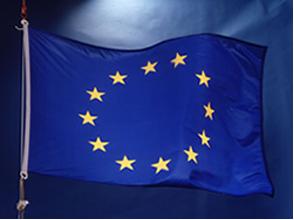
BAM’S EFFECTIVENESS HINGES ON UKRAINE’S INTEGRITY
Publication: Eurasia Daily Monitor Volume: 2 Issue: 193
By:

The success or failure of the European Union’s first-ever Border Assistance Mission,
now being launched on the Ukrainian-Moldovan border (see EDM, October 13) will
depend on three highly uncertain factors: cooperation by the Ukrainian government,
political consistency in Brussels and by EU diplomatic representatives in the field,
and strengthening the BAM’s mandate and resources.
Ukrainian government statements seem outwardly encouraging. Ambassador Volodymyr
Yelchenko told the October 13 session of the OSCE Permanent Council, “Having signed
the Memorandum [with the EU and Moldova on BAM], the Ukrainian government has
confirmed its openness, transparency, and firm determination to prevent and
eradicate smuggling, organized crime, and corruption at the border.” Minister of
Foreign Affairs Borys Tarasyuk declared at the signing ceremony, “It was impossible
to imagine such things before [Viktor] Yushchenko was elected president. The former
leadership of Ukraine had served as a cover for smugglers. Today, legal business
could celebrate and smugglers should despair.” (UNIAN, October 7).
The actual attitudes are far more complicated in Kyiv and along the border. Leonid
Kuchma’s regime had indeed from 2001 through 2004 rejected all Moldovan and EU
proposals for joint border monitoring. From January 2005 on, the new leadership
adopted a more nuanced position, designed to win favor in Brussels, but without
hitting too hard at illicit incomes generated on the Ukrainian side of the border,
and short of anything resembling an economic blockade of the Tiraspol leadership,
with which Kyiv sought a political deal via the “Yushchenko” peace plan for
Transnistria. The foremost question is whether Yushchenko will permit the
implementation of the Ukrainian government’s May 2005 anti-smuggling decrees, the
implementation of which Yushchenko himself has suspended.
The peace plan’s real author, former National Security and Defense Council secretary
Petro Poroshenko, in effect farmed out Ukraine’s customs service to a group of his
long-time associates from the grey-business world in Vynnytsya, an oblast adjacent
to Transnistria and known as a conduit for smuggling. Poroshenko’s close associate
from Vynnytsya, Volodymyr Skomarovsky, top chief of Ukrainian customs until
September 2005, advocated publicly and imposed in practice a policy whereby
Transnistria’s exports via Ukraine are legal, unless the cargos contain drugs,
illicit arms, or trafficked humans. Through this definition, Ukraine legalized the
Tiraspol leadership’s lucrative exports, despite the fact that they do not carry
customs seals, stamps, or certificates from any recognized authorities. This issue
has been discussed at length in the
Ukrainian press this year, corrupt interests were exposed, and the president could
not have been unaware of the adverse implications for Ukraine’s international image.
For their part, Moldova (in the first place) and the EU (less consistently) took the
position that all cargos out of Transnistria that do not carry legal customs seals,
stamps, or certificates and are unregistered in Moldova constitute contraband by
definition. Moldova wanted the producer and exporter firms in Transnistria to
register with Moldova’s authorities and pass through Moldovan customs — or joint
Moldovan-Ukrainian customs — in order to qualify as legal exports.
Responding to Moldovan and EU requests, the government of Yulia Tymoshenko issued
three decisions and ordinances in May 2005 in accordance with the proper legal
definition of contraband. With this, Tymoshenko sided with the Moldovan government
against her rival Poroshenko and his Vynnytsya group interests. However, the
implementation of those decrees was postponed until July, at which point Yushchenko
officially suspended their validity indefinitely. Yushchenko took this decision
during a meeting in Kyiv with Transnistria leader Igor Smirnov, as part of some
reciprocal understandings that remain unclear. The meeting itself was amply covered
by media from Kyiv and Tiraspol, but the decisions reached were not reported, and
official Kyiv left Chisinau largely in the dark. The Tymoshenko decrees remain
frozen.
During the final negotiations that led to the signing of the EU-Ukraine-Moldova
Memorandum on BAM, the Ukrainian side attempted to restrict BAM’s mandate in four
ways: first, by providing for pre-announced inspections and visits, as distinct for
unannounced ones; second, by authorizing cargo inspections at official checkpoints
only, not at the unofficial crossing points; third, by restricting the area open to
checking to 100 meters on either side of the border; and, fourth, by applying the
restrictive definition of contraband, authorizing passage of almost all goods save
explicitly forbidden ones (arms, drugs, trafficked humans).
According to participants in the end-game negotiations, the EU’s and Moldova’s
positions ultimately prevailed on the first three counts, but not on the fourth. The
operational definition of what constitutes contraband is ultimately decisive to
BAM’s effectiveness, particularly in view of the mission’s small manpower and meager
financing on this 1,200-kilometer long border.
(OSCE Permanent Council documents, October 13)




